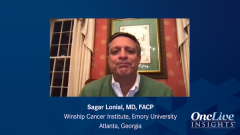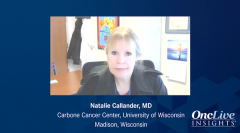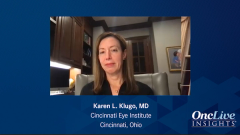
BCMA-Targeting Bispecifics for the Treatment of RRMM
An overview of novel bispecific therapies under development in relapsed/refractory multiple myeloma.
Episodes in this series

Natalie Callander, MD: There were a lot of presentations at this year’s ASH [American Society of Hematology annual meeting] looking at bispecifics. A bispecific is basically a drug that has 2 business ends on it. Most of the bispecifics in the lead position are targeting BCMA [B-cell maturation antigen] and then pull together a myeloma cell with a T cell by the CD3 end. Probably the most advanced bispecific in development is a drug called teclistamab. There was an update at ASH looking at both efficacy and adverse effects.
Because these bring the myeloma cell in contact with T cells, the biggest adverse effect of these compounds is cytokine release syndrome [CRS], which is similar to what you see with CAR [chimeric antigen receptor] T-cell therapy. They tend to happen early after the first dose or 2, and then the incidence of those cytokine release syndromes tends to go down. All of these have very nice response rates. Teclistamab is about 65%. There was also a presentation on elranatamab, which is another BCMA-targeted bispecific, with similar response rates. They have the CRS adverse effect that has to be taken into account. For many of these drugs in the experimental studies, there’s a requirement for some hospitalization briefly as you’re doing a ramp-up.
Very excitingly, there are also bispecifics that don’t target BCMA that are being tested in patients who previously had BCMA-targeted therapy. For example, there’s the drug talquetamab. Talquetamab is targeting GPRC5D, which is a different target on myeloma cells, although this is also a bispecific. Data was updated on this at ASH, and this is showing about a 77% response rate. This particular study included about 30% of patients who had received previous BCMA-targeted approaches, so that’s looking promising. There are other non–BCMA-targeted bispecifics in development as well.
Transcript edited for clarity.







































